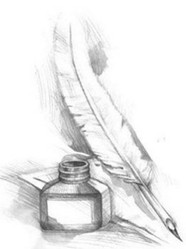One of the strongest trends in interview techniques is called B.D.I., or Behavior Descriptive Interviewing.
This type of interview technique was invented to improve employee retention. Too much time and resources were being expended in interviewing and training new employees, only to have to replace them because they were found to be unsuitable for the job.
Human Resources specialists called in to tackle the issue of employee retention and hiring suitability found that often the person who gave the best interview might be the most personable, but was frequently not best fit for either the job for which they were applying, or for the culture of the company.
Research soon showed them several interesting things. The most important of these was that past job behavior was the best indicator of future job behavior.
This led them to the second - the development of the technique of describing past job duties to show how they fit current job requirements, which is the key to behavior descriptive interviewing.
Large companies will often hire HR specialists to facilitate up-coming hiring. The specialists will exhaustively interview current key employees who already hold positions for which interviews will be held, about the activities they undertake in the completion of their job duties.
These specialists then compile and prioritize those activities into key job duties, and use them to produce interview questions.
The questions will then be used to interview potential employees. As this process can be lengthy and expensive, companies will often have interview questions compiled for most of the key positions in the company.
The behavior descriptive questions produced by this method allow the prospective employers to dig deeper than the simple comparison of past duties to prospective duties.
They allow for the employer to have a far more accurate gauge of what to expect from their potential new hire.










 Summer in the Land of the Midnight Sun: Lush gardens, beautiful flowers, small town livingon 07/27/2012
Summer in the Land of the Midnight Sun: Lush gardens, beautiful flowers, small town livingon 07/27/2012
 White Rock, B.C. - Tourist Mecca In Any Seasonon 06/13/2012
White Rock, B.C. - Tourist Mecca In Any Seasonon 06/13/2012
 How To Get a Great Job - Build a Great Resumeon 06/07/2012
How To Get a Great Job - Build a Great Resumeon 06/07/2012
 Golden Ears Provincial Park: Fun, fabulous, family-friendly travel destinationson 06/10/2012
Golden Ears Provincial Park: Fun, fabulous, family-friendly travel destinationson 06/10/2012



Comments
I just went for a job interview today and got to put my advice into practice. The second question can be handled well if you have done your homework about the company. You should have a pretty good sense of what they are looking for, so choose the skills from your past jobs that best fit this company's needs.
For example, in your work, you are required to be detail oriented, focused on the work environment, and be ready to adapt to changing circumstances or an emergency (safety first), BUT you also interact with the public, so you are the face of "customer relations/service" for your crew. You have to know and apply the required standards to keep your crew and the public safe, and traffic flowing with minimum interruption, while making the public aware of the reasons for any delay, but keeping them calm and happy about the work.
You can then take that info, and say that your best qualities are that you have shown yourself to be conscientious worker, friendly and outgoing with the public, while maintain positive, professional relationships with your team, and any workers you supervise. As well, that you thrive in a challenging, fast-paced, work environment.
The final question to me today was "What makes you the best candidate for this job?" My reply was "I feel I am a good fit for the office, that my age and experience has taught me the value of hard work and goal-setting, and my background/skills will allow me to make a valuable contribution in supporting the goals of the organization. Also, as a mature worker, I have the luxury of being able to concentrate on my own career/work without having to worry about a young family at home."
(I added the "mature worker" statement because I knew the current person was leaving to have a baby, and I also knew they didn't want to train a new young person only to have them leave to get married or move away to the big city... Research is a wonderful thing.)
My mind goes blank when asked the second hardest questions LOL
Thanks so much, katie. I used to work as a facilitator in "Job Finding Club" and helping people with resumes, letters, etc. was a big part of helping them get back to work. Hopefully this will be useful for someone.
2uesday, hindsight is always useful - that's where we get all the questions to practice for "next time."
Flora, being nervous is on good reason to practice your answers. Some folks worry about sounding "rehearsed" but with a few practices, they do a much better job than going in cold.
Tolovaj, having more than one option will certainly relieve the pressure, and practice will help alleviate the rest (we hope).
This is one helpful bit of information I'm sure so many can put to good use as many unemployed are still searching for jobs. Going to tweet this right away. Thanks for the job hunting tips and guide.
Thanks for provided so comprehensive guide to all job seekers. If i remember correctly I have never had significant problems at my interviews but this could be because I always had more than one option and never felt too much pressure... Maybe this can help others too?
I will return to this the next time I have an interview anywhere. I had an interview that wasn't a job interview a few days ago, but it was set up to place me to see where the office could best help me and I did indeed ending up telling them my "whole life story" in a short time out of nervousness. I have been known to sabotage myself by saying too much too soon in a variety of settings where I am nervous. The latest example had the person who gave me the informational interview the idea that I need a job that will exercise my mind-true of my ideal job. But when another job is available to help pay your bills...you take security.
But alas, my talk had the man convinced it was more important to me to get the ideal job than any job and therefore that dept. cannot help. I talk with extreme detail and speed when I am nervous.